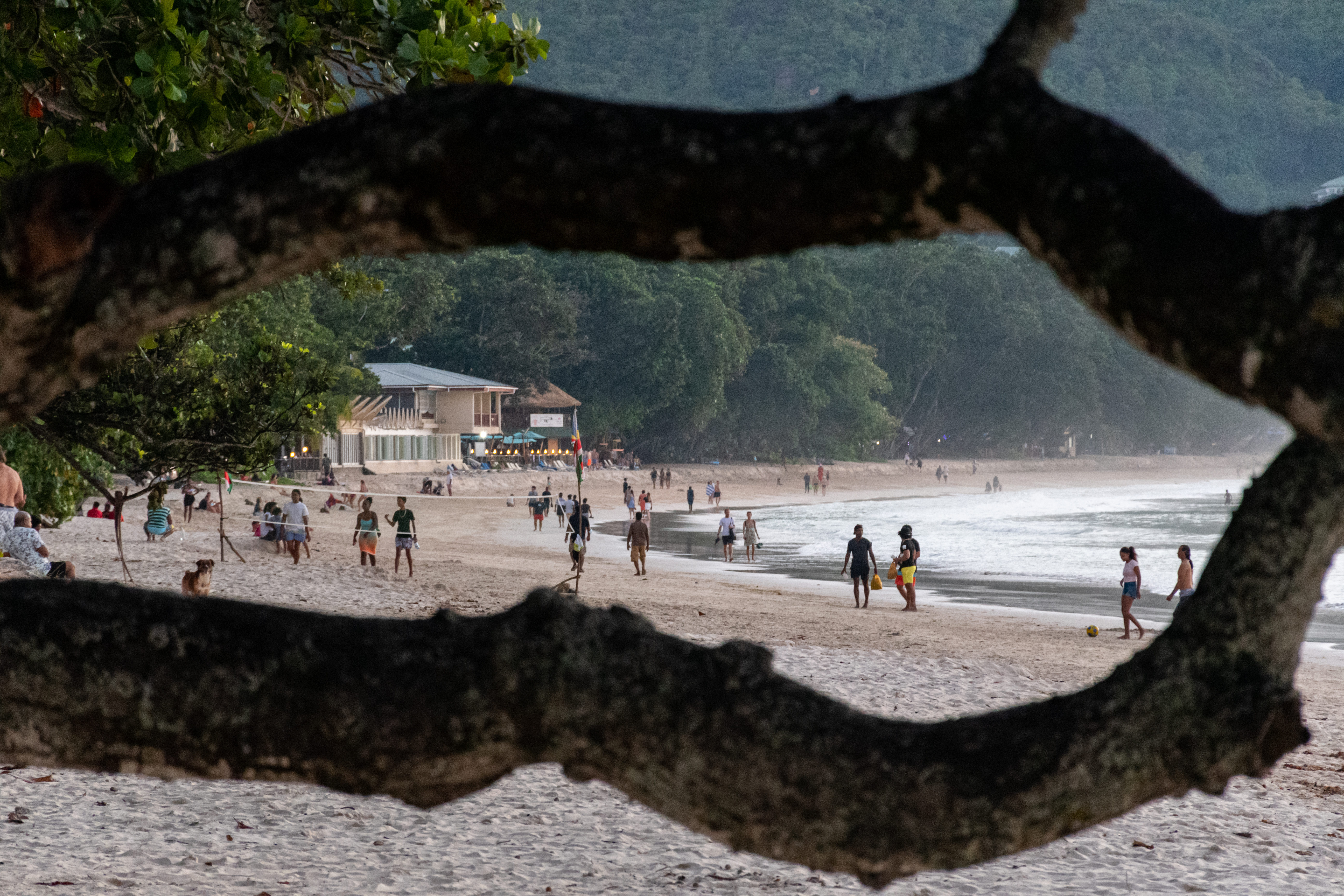Plastic pollution in Small Island Developing States: A crisis beyond borders
June 5, 2025

Plastics pollution is both an environmental and economic threat in Small Island Developing States, where tourism and marine resources are central to economic activity.
Plastic pollution is a global crisis that transcends borders and bodies of water. Across the world, thousands of tonnes of discarded plastic find their way into waterways, coasts and into the vast expanse of the sea. This insidious journey transforms what was once a simple bottle or wrapper into a silent contributor to environmental degradation and potential health risks for human populations, even on distant shores.
Picture this: a bright afternoon somewhere in a mainland country in the southwest Indian Ocean. Someone finishes their drink and tosses the plastic bottle onto the street without a second thought. Over time, rain picks up the bottle, sweeps it into the drainage system and sends it flowing into a river, where it begins its long journey towards the ocean. Months later, this same bottle, battered and faded, washes up on the stunning beaches of Mauritius or Seychelles—two Small Island Developing States (SIDS) that are celebrated for their beauty but struggling under a growing mountain of plastic pollution.
The big picture: How plastic pollution hurts the environment
That bottle is not just an isolated problem; it is part of a much larger crisis. According the United Nations Environment Programme, every year, the world produces around 430 million metric tonnes of new plastic. If we proceed on this trajectory, global plastics use is expected to nearly triple by the year 2060.
Plastic pollution is wreaking havoc on marine ecosystems. As plastics break down into tiny microplastics, they end up being eaten by fish, birds and other marine life, making their way into the food chain. Although research on the health impacts of microplastics is still emerging, early findings raise concerns for further scientific studies.
"For Small Island Developing States like Mauritius and Seychelles, battling plastic pollution is not just about protecting the environment—it is about safeguarding their identity, economy and future."
Coral reefs—the vibrant underwater ecosystems that sustain life —also suffer from the plastic pollution. According to the World Wildlife Fund, “[n]ot only has plastic pollution entered the marine food web, it is significantly affecting the productivity of some of the world’s most important marine ecosystems like coral reefs, seagrasses and mangroves. For nations like Mauritius and Seychelles, where tourism and marine resources are central to their economies, the damage isn’t just ecological; it’s economic, too.
What makes plastic waste management difficult for SIDS?
Small Island Developing States face unique hurdles when it comes to tackling plastic waste. Land is limited, so building large waste management facilities is not always an option. Importing waste treatment technology? That is expensive. And geographic isolation means it is hard—and costly—to export waste to bigger markets for recycling. All this to deal with marine debris that is often not even theirs, making the problem feel even more overwhelming.
The good news is that both Mauritius and Seychelles are tackling the issue head on. They have introduced helpful policies to combat plastic pollution generated locally.
Mauritius has banned single-use plastic items like straws, plates and cutlery; it also rolled out strict regulations on plastic waste disposal and actively encourages businesses to adopt eco-friendly practices. The Seychelles has been equally proactive, plastic bags, single-use straws, cups and utensils? All banned in 2017, and single-use plastic straws in 2019.

Mauritius and Seychelles have introduced policies to combat plastic pollution generated locally. Global solidarity is needed to address the refuse that washes up on their shores.
The Seychelles is also promoting public engagement, from waste segregation to recycling programmes to community clean-ups. They are also teaming up with international organizations to tackle marine debris. One example is the Aldabra Atoll clean-up a collaboration between the Seychelles Islands Foundation (SIF), the Queen's College of Oxford University, Seychelles Coast Guard and Seychellois volunteers, where 25 tonnes of marine debris, largely plastics, was removed from the UNESCO World Heritage site.
What more can be done?
The story of that plastic bottle tossed from the mainland is a reminder of how interconnected we all are. For SIDS like Mauritius and Seychelles, battling plastic pollution is not just about protecting the environment—it is about safeguarding their identity, economy and future. Bold policies and laws, community initiatives and projects like the Aldabra Atoll clean-up show that progress is possible. But they cannot do this alone. We are our neighbour’s keeper – it is a crisis beyond borders.
The Intergovernmental Negotiating Committee to develop an international legally binding instrument on plastic pollution, including in the marine environment (INC-5.2), is planned for August 2025. Before this, the UN Oceans Conference takes place from 9 to 13 June in Nice, France. On the agenda are conservation and sustainably managing and restoring marine ecosystems, increasing ocean-related scientific cooperation and the science -policy interface for ocean health. In all this, beyond discussion about plastic pollution as a global crisis the effect on our oceans much more is needed.
SIDS need acts of solidarity from the rest of the world. The agreement by Heads of State, environment ministers and other representatives from 175 countries to create a first-of-its-kind international legally binding instrument to end plastic pollution is a good start. Until we get there, beyond policy and laws, what can we all do? Whether it is cutting down on your own plastic use, supporting national clean-up programmes, or advocating for smarter collective policies at the subregional level, every little bit helps.

 Locations
Locations




